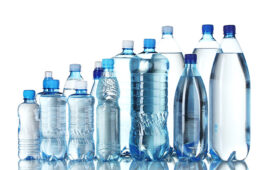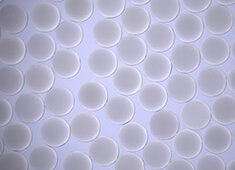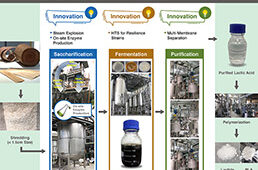.jpg)
Imagine throwing your empty plastic water bottle into a household composting bin that breaks down the plastic and produces biogas to help power your home. Now, researchers have taken an early step toward this futuristic scenario by showing that certain blends of bioplastics can decompose under diverse conditions. They report their results in the ACS journal Environmental Science & Technology.
Plastic waste pollution is a global environmental problem, particularly in oceans, where plastic debris can harm or kill sea animals and birds who ingest or become entangled in it. Despite increased levels of recycling in many countries, most plastic waste still ends up in landfills or the environment. Scientists have developed biodegradable plastics, but they often lack the flexibility, strength or toughness of conventional plastics. Blends of different bioplastics can offer improved characteristics, but their environmental fate is uncertain. Tanja Narancic, Kevin O’Connor, Ramesh Babu Padamati and colleagues wanted to examine the degradation of individual bioplastics and their blends under various conditions.
The researchers studied the fates of 15 different plastics or blends under managed conditions, such as composting and anaerobic digestion, as well as unmanaged environments, including soil and fresh or marine water. Polylactic acid (PLA) is one of the best-selling biodegradable plastics on the market, but it requires high temperatures for breakdown and is not home-compostable. Surprisingly, a blend of PLA and polycaprolactone (PCL) degraded completely to carbon dioxide, biomass and water under typical home-composting conditions. Many of the individual plastics and blends that were tested decomposed under conditions of anaerobic digestion, a process that can produce biogas, and all degraded with industrial composting. The researchers say that biodegradable plastic blends could create new possibilities for managing plastic waste. However, only two plastics, polyhydroxybutyrate (PHB) and thermoplastic starch (TPS), broke down completely under all soil and water conditions. Therefore, biodegradable plastics are not a panacea for plastic pollution, and they must be managed carefully after they leave the consumer, the researchers say.




